So you have got a garden and want to begin with organic gardening, or even if you have some gardening experience before, still this post will be quite helpful for you. In this article, I will cover every topic one should know about organic gardening. So be with me.
Now a days, it seems like a trend of organic things, not only edible products like veggies or fruits but also other products like shampoos, soaps, oils etc.
Introduction to Organic Gardening: What is Organic Gardening?
Organic Gardening is a technique or art of growing plants or veggies in your backyard or garden without using any pesticides or synthetic fertilizers. Some people think that if they are not using pesticides they are doing organic gardening, but this is not the case. Not using pesticides or harmful fertilizers is not the only thing in organic gardening. There are a lot of things one must take care of.
Organic gardening helps in replenishing the natural resources we use them. Your plants are part of a large ecosystem in organic gardening. In today’s era, people thrive for natural vegetables grown without using harmful chemicals fertilizers, organic gardeners help in achieving this. Organic gardening mainly focuses on 3 areas: one, the soil management, second, weed management, third, pest management.
There is a difference between an organic garden and conventional garden as organic gardens are contributing to the ecosystem. Anyone can start organic gardening by little efforts, but trust me results are great!
Advantages/Benefits of Organic Gardening
Why should we go with struggles of organic gardening when we can simply continue with our normal gardening technique using conventional methods. The answer is simple, to help nature and the ecosystem. It will help people lead a much healthy lifestyle if everything is organic and chemicals free. Let’s have a look at some benefits of organic gardening.
1. Helps in Improving the soil health
When you regularly tender and add natural organic components to your soil. It provides you with a naturally rich top layer of your garden soil, which is capable of growing fruits, vegetables and different plants without using toxic hard chemicals. As time goes by and you keep on adding organic matter to the soil, it helps in reducing soil erosion, which is the main reason for dust, earthquakes, and other serious issues.
2. There are a lot of health benefits of organic gardening
From the beginning, you eliminate the usage of chemical pesticides and fertilizers and handle very fewer chemicals, so you are ultimately helping people to stay healthy. You do not spray, spread, even touch these plants with synthetic fertilizers and thus reduce the number of nitrates absorbed by the food items. It has been scientifically proved that plants and vegetables grown organically have the power to deliver more antioxidants as compared to normal gardened plants. These antioxidants are quite helpful as they help in avoiding serious diseases like cancers. Also, people tend to eat more fruits and vegetables grown organically because they taste much better.
3. Helps in water conservation
When you perform organic gardening, not only you help in preventing soil erosion but also is a great tool for water conservation. Which can be quite helpful in drought conditions. You may be thinking how? The reason is that soil which is quite rich in organic compounds holds moisture better, thus you will need to water them less often. Also due to several inches of layer of topsoil leads to a reduction in the rate of evaporation.
4. You get fresh and tasty organic food.
Yes, I can guarantee that if you compare the taste of fruits and vegetables grown organically vs those grown using conventional methods, believe me, a taste of organic ones will be much better. Sometimes it may be possible that fruits or veggies grown at home are not in uniform size or looks but taste (which I think matters most) will be supreme. Another aspect is that you will be proud of the food you have grown.
5. You can save a few bucks with organic gardening.
You may be quite shocked to know that, growing organic food costs you less than growing fruits and vegetables using conventional methods, but it is true. When you are performing organic gardening, you are saving money by not buying those costly chemical fertilizers, pesticides and other gardening supplies. You will use kitchen waste, other yard clippings which have turned black as fertilizers to replenish the nutrients in the soil. You will also use helpful organism like an earthworm and can mix pesticides and herbicides from items found in your pantry.
Also, if you go to the supermarket to buy these organically grown food items, you will need to pay a much higher price. Thus you are saving money by growing on your own.
6. Environmental benefits
There are numerous environmental benefits of performing organic gardening. As we know that fertilizers used in organic gardening are organic in nature as they are prepared using plant and animals waste sources such as manure and compost. With time these products provide nutrients and minerals to plants and also help in improving the soil structure. You should remember that as the structure of soil will improve, you will require much fewer fertilizers then before.
This soil is capable to hold the water better, thus less runoff of nutrients rich top layer of soil.
Another reason how you would be contributing towards the environment is as you will not use any chemicals in your gardening, thus there will be fewer chemicals in the water supply. You will put a lot fewer efforts on your nearby landfill by making a pit of compost using kitchen waste and yard scraps. Examples of some natural pesticides and herbicides are vinegar, castile soap, Epsom salts etc. They help by protecting your crops from bees, butterflies and even birds. Thus your garden will be totally safe.
So these were some benefits of organic gardening, I know you are now fully pumped up to begin organic gardening in your backyard. Let’s discuss the next important topic.
Needed Tools for Organic Gardening
Having the right tools becomes very important as it makes gardening easy. Don’t worry organic gardening is not very different in terms of tools as compared to conventional gardening. But let’s have a look at some basic tools which are a must.
- A water timer
- Quick connectors
- A hose or hoses
- Pruners
- Spray nozzle
How to get started with Organic Gardening
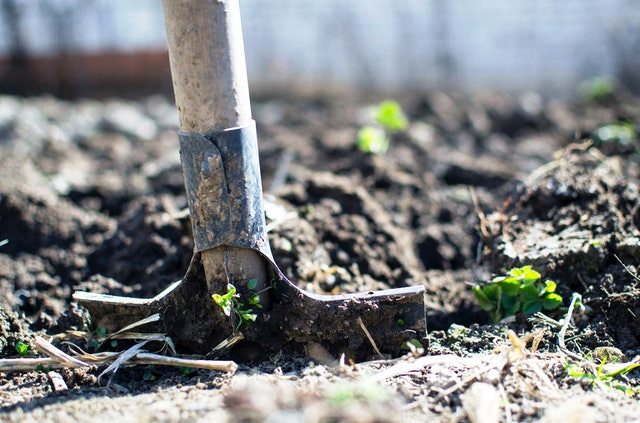
So now you know what is organic gardening, what are benefits of gardening organically, and you have all the necessary tools too. So the next thing is where and how to get started with organic gardening. I will guide you throughout all the steps you should follow for beginning with the organic gardening.
Step 1: Choose a perfect Site
This is a most underrated step but very important for organic gardening, there are many factors important when choosing a site, for eg sunlight is very important for your garden, doesn’t matter organic or conventional, your plants will need to have 6-8 hours of sunlight each day. So you should always choose a place in your yard that receives good sunlight as well is quite shaded.
Keep these factors in mind while choosing a perfect site for your organic garden:
1. No big roots: Your garden shouldn’t have big trees or plants with big roots as your organic plants will have a competition for moisture, so it is recommended to choose a place without plants or big trees.
2. Sun: As already discussed, sunlight for 6-8 hours per day is necessary for your plants. So, try to spot a place which will have an ample amount of sunlight throughout the day, especially in winters. But keep in mind that some plants may need shade also, such as lettuce and other herbs can tolerate partial shade only.
3. Good drainage system: It becomes quite necessary to have a good drainage system, otherwise it may result in damage of plants. So, make sure your site doesn’t have drainage problems.
4. Good soil: It is very necessary to have nutrients rich and well-drained soil for your organic garden. You should have a place nearby where you can have a compost pit, which will be useful to add some extra vitamins and minerals in the soil.
5. Short distance: This may sound a bit obvious but yes it is good to have the garden as near to your house as possible. If your garden will be far, it is possible that you will develop some excuses to not visit it on regular basis. Once you did that, you will lose interest.
Your garden should have a water supply, otherwise, you will need to drag hoses around just to water your garden regularly.
Raised Beds
They are quite helpful for beginners, who doesn’t have any gardening experience. These raised beds are much easier to maintain as compared to regular soil beds and also it is easy to keep them hydrated and weeded. You will also learn how to plant directly in the soil.
Step 2: Prepare the soil for organic gardening
Soil is one of the most important things or resources for organic gardening. It becomes necessary to prepare the soil as it will result in the healthy growth of plants. When it comes to organic gardening, the most important component of soil is the organic matter like compost, manure, peat moss etc. They contain decayed micro-organisms from the previous plants and are the best option for soil. All the nutrients are supplied by these microorganisms only.
You will need to maintain a stable pH, if you are not familiar with soil pH property then it is recommended to get your soil testes by the DIY organic garden, their rates are quite affordable and you can avail their online service too. It depends upon your soil baseline, whether you need to add high-quality compost or not. If you have compost available at your home then it’s well and good but if not you can even add some organic all-purpose soil as a top layer.
As you need food regularly, similar is the case with plants. They need nutrients which comes from the soil, so we need to make sure that our soil is rich in nutrients, for that proper soil conditioning is necessary. Fertilizers help in providing plants with nutrients and grow well.
Always keep in mind that we are doing organic gardening, so we need to stay away from chemical soil treatments, as they not only destroy the soil composition but also harm the abilities of much needed microbes, bacteria and other insects like worms.
Step 3: Prepare a good Compost for your plants.
As we have discussed before, compost is a very important part of organic gardening as it provides the plants with necessary nutrients and also helps in saving water as well as help you in utilizing your kitchen waste.
You got two options either you can buy in bulk if your garden size is quite large or you can prepare it locally using your backyard and home garbage like leaves, trimmed grass, kitchen waste like vegetable and fruits peels, food leftovers etc. Below are some steps to create a successful compost locally:
- Prepare your compost in at least 3 square feet of space.
- Collect all the natural weeds, leaves, plants remains etc. Add some green materials like kitchen waste, manure etc. Now put a layer of soil above it to separate them.
- The height of the soil should be 4-6 inches.
- Now you have to keep turning the pile every time you add a new layer to the compost. Remember to add water regularly which will keep the compost moist and hence microbes will be quite active.
- Normally it shouldn’t smell a lot but if it is the case then you can add a layer of dry leaves, dust or straw regularly. It will take about a month for your compost yo be fully ready for your organic garden.
Step 4: Choosing the right plants for your garden
So now you have prepared your garden and your compost is also ready to be used in your organic garden. So the next step is to choose the right plants for the garden. So, the soil test will now come in handy as you should choose plants according to your soil type. Also, you should focus mainly on plants that you can consume, ultimately it should benefit you so your interest will be intact. If you planted wrong plants or plants which you are not connected to, then it is possible that you will lose interest in gardening. Keeping important factors like soil type, season, and consumability in mind, go for the most suitable plants. Many people make this mistake that they try to grow winter plants like brussels sprouts during the month of June/July which is the hottest, ultimately these plants fail.
As our focus is to use natural processes to provide nutrients to plants, we should opt for plants which will act as a companion to these. Crops which will be adapt nicely to the climate of your garden are more likely to be successful, as there will be no need for special attention to them.
You should keep the planting spots in mind while choosing the spots, as it becomes very important that your plants will grow properly with proper moisture, sunlight, and quick drainage. You need to keep your plants healthy and safe from attackers.
When you are buying the saplings or seedlings, make sure that they are not raised using chemical pesticides or harmful fertilizers.
Here are some plants for beginners:
If you are not a gardener and trying this for the first time then it is recommended to choose rigid plants which are quite strong and doesn’t need special care.
Hot Weather Organic plants
- Sunflowers
- Marigolds
- Tomatoes
- Zucchini
- Green beans
- Basil
Cold Weather Organic plants
- Radishes
- Peas
- Carrots
- Spinach
- Lettuce
Step 5: Make Plant Beds
It becomes very important to plant your crops in wide beds. When we plant our crops in this manner, we actually prevent chances of someone walking over them and also the soil will be safe, when harvesting the crops or cutting the flowers. Also, when you plant them in groups, you reduce the weed growth, wastage of water. It will be quite easy for you to apply compost. When there will be a good amount of space between the rows, air circulation will be quite good and it will repel fungal attacks too. When we plant crops in bed, plants utilize the available nutrients and water adequately.
Step 6: Watering your plants adequately
Now your next step is to water your crops inadequate amount, you can start watering the plants immediately after planting them. You should be careful not to flood them. Your water schedule should be something like this. You should water them daily morning until seeds germinate or roots are quite established. Watering them in the morning is beneficial because there will be no strong winds, and the temperature is low, so the rate of evaporation will be reduced.
Once the roots of plants are established, you can shift to infrequent watering schedule, something like an inch a week will do fine. If there is rain, then you don’t have to worry about watering that week, otherwise once a week will do good.
You can opt for an automatic water timer by installing a drip system, it will water your crops without much effort needed.
Step 7: Weeding time to time
Imagine you are stuck on an island and have a limited amount of food and water, you would want to have less number of people around you. Similar is the case with plants, when there are a lot of weeds around the plant, they act as competitors of nutrients, water, soil, space, etc. Thus a high number of weeds result in reduced crop yield, even they tend to lower the crop quality by contamination. Many weeds are found to be host to some diseases, insects that are capable of destroying your crop. It seems a tough job to pull out weeds but you should have this on your routine, on the positive note it will be a good exercise for you.
Step 8: Providing Nutrients to your Crops
As you have decided to opt for organic gardening i.e no use of pesticides and chemical fertilizers, it doesn’t mean that your plants will not require protection from toxic insects and also provide them with required nutrients. So, alternate ways are to provide your plants with a good amount of sunlight, moisture, and nutrients to help them grow. You should opt for diversity in your garden as it would give a boost to biodiversity by limiting the similar type of plants.
So now the question arises that how would do pest control if we are not allowed to use harmful pesticides. The answer is that you have to emphasizes on companion planting. In this, you need to prevent pests and other diseases to grow till the damaging level. You can do this by allowing beneficial insects and other predators who feed on these pests like lizards, birds, bats and spiders.
You will need to put a lot of hard work in this area, as you will need to go with companion crop method, handpick infected leaves or buds, insects pests and eggs. Crop rotation is also an excellent method for controlling pest growth.
There are natural sprays available in the market which are bit costly than normal pesticides but are great for controlling pests.
Step 9: Using Organic Fertilizers
I know you have created a good compost in your yard and it helps you to supply healthy required nutrients and also improve water retention but the nutrition supply to plant is limited using these. So plants require additional fertilizers too. We need to use fertilizers made using natural resources like wood, ash, manures, etc. These fertilizers are also available at organic farms.
Step 10: Harvesting your Crops
I think this is the favourite part of any Gardner when you get to reap the rewards of all your time and hard work. This is like a gift which you will keep on getting over the years. When there is a peak of the ripping season, you may need to go and pick up the ripe vegetables and fruits on daily basis.
Step 11: Maintaining your Garden
It is very important to maintain the organic garden i.e watering, weeding and harvesting regularly. Not only during the season but even when the growing season is over and your garden is finished for this season, still there are some requirements you need to follow to keep your garden ready for next crops.
1. Crop Rotation: It is a traditional proven method which is in use to keep the soil rich in nutrients every season. When you move the location of crops to different areas in your garden, it would utilise minerals from that part of the soil, thus give time to other parts to regenerate those nutrients.
Some FAQs
1. What can be called organic?
Anything which is free from harmful chemicals and is produced using natural resources can be called organic.
2. Do Organic farmers use fertilizers?
Yes, they indeed. The fertilizers used by organic farmers are biological and does not contain harmful chemicals.
3. Which is the best organic fertilizer?
Manure and compost are the best organic fertilizers which can easily be prepared at home.
So congratulations, now you know everything about organic gardening. What are you waiting for, go on?
You May Like:
How to Neutralize too much manure in the garden
How to Grow Avocado from Avocado using Toothpick or without Using Toothpick
How to grow sword ferns from spores
10 Best plant disease identification apps
Gardening while pregnant: things to keep in mind
Best Succulent Identification Apps
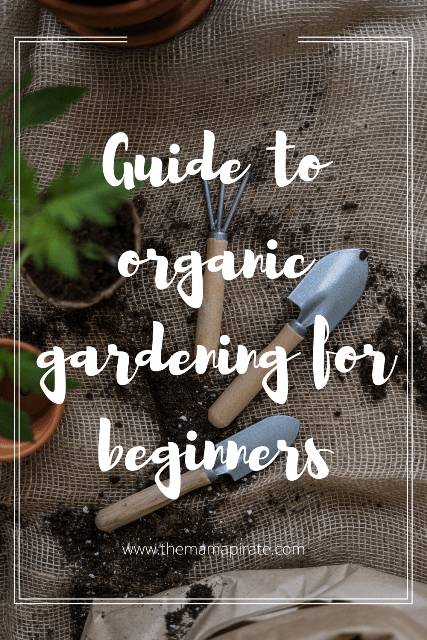

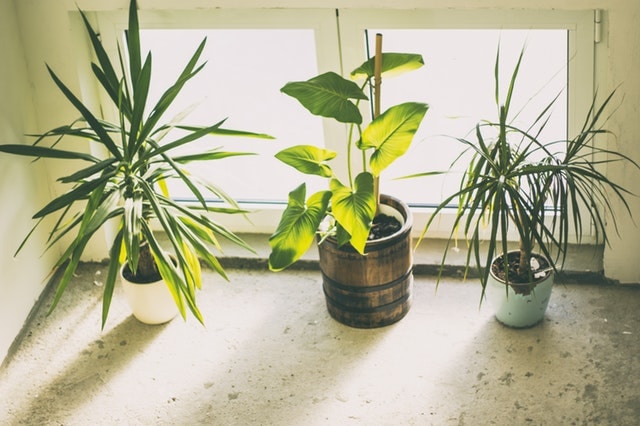
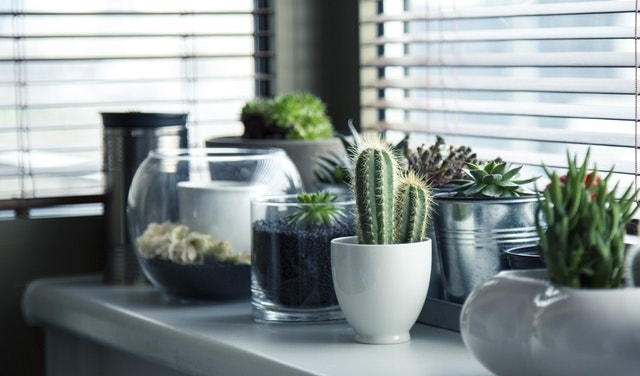
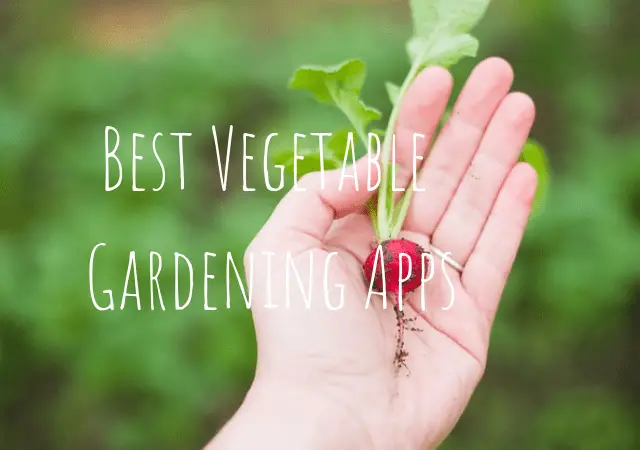
Chemically, anything that has carbon in the molecule is organic. Therefore, many fertilizers are organic. Rather than calling this organic gardening – how about calling it NATURAL gardening.